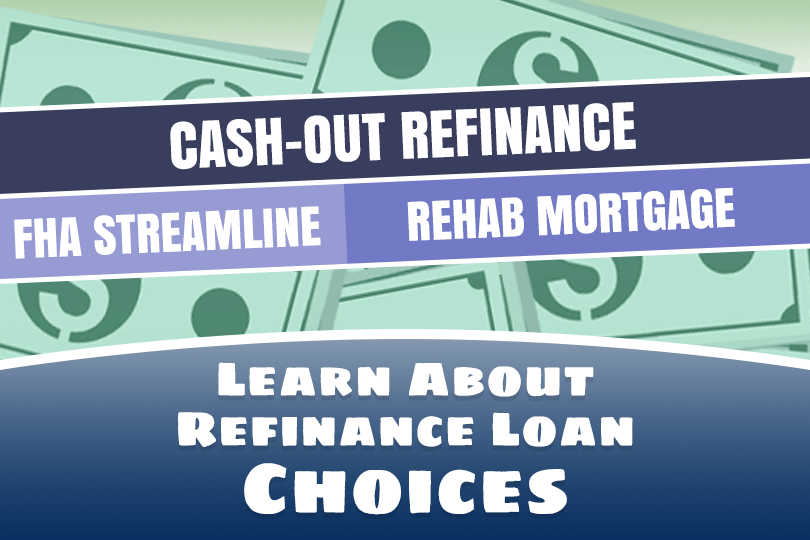Refinancing With Various FHA Loan Options
August 19, 2023
Here are some common types of FHA refinance loans:
FHA Streamline Refinance
This program is available to homeowners with existing FHA loans and is designed to make the refinancing process faster and easier. Streamline refinances typically do not require a credit check or a full appraisal, which can save time and money. Borrowers can refinance to a lower interest rate and reduce their monthly payments.
FHA Cash-Out Refinance
With a cash-out refinance, borrowers can refinance their existing FHA loan and take out additional cash from the equity in their home. This additional cash can be used for various purposes, such as home improvements, debt consolidation, or other financial needs.
FHA Rate-and-Term Refinance
This type of refinance allows borrowers to change the terms of their existing FHA loan, such as switching from an adjustable-rate mortgage (ARM) to a fixed-rate mortgage or vice versa. It can also be used to shorten or extend the loan term.
FHA 203(k) Rehabilitation Loan
While not strictly a refinance loan, the FHA 203(k) program allows borrowers to purchase or refinance a home and include the cost of necessary repairs and renovations in the loan. This can be a useful option for those looking to improve their existing home through refinancing. These are often referred to as FHA rehab loans.
It's important to note that FHA refinance loans come with certain eligibility requirements and guidelines, including credit score minimums, loan-to-value ratios, and occupancy requirements. Borrowers should also be aware of FHA mortgage insurance premiums, which are typically required for the life of the loan.
Speak with an FHA-approved lender to determine if you qualify and to understand the specific terms and benefits of the program. Your financial situation and goals are unique parts of the qualification and approval process. Additionally, the terms and guidelines for FHA loans may change over time, so it's essential to stay informed about current FHA loan requirements and regulations.
------------------------------
RELATED VIDEOS:
Disclosures Give Transparency to Borrowers
Understanding the Purpose of Your Mortgage Down Payment
Putting Money Into Your Escrow Account

FHA Loan Articles
April 30, 2025 In a previous post, we discussed why FHA borrowers should carefully consider whether paying for discount points truly serves their best interests, focusing on factors like short-term homeownership, opportunity cost, FHA mortgage insurance, and the prevailing interest rate environment. Discount points are an option for borrowers willing to pay a fee to lower the interest rate by a set amount. This is not right for all borrowers, and you don't want to pay for points you won't benefit from during the loan term.
April 29, 2025Are you considering buying a home with an FHA loan? You'll likely talk to your participating lender about FHA loan "discount points" – fees you pay upfront for a lower interest rate on your mortgage. The idea behind discount points is a straightforward exchange: you spend money today to reduce your interest rate. Typically, one point equals one percent of your total FHA loan. In return, your interest rate might decrease by an amount you and the lender agree upon.
April 28, 2025Home loans have various expenses that aren't apparent to a new borrower until much later in the process. What do you need to consider when making your home loan budget? It might not be complete without addressing some of the issues we cover here.
April 23, 2025 While the prospect of lower interest rates or more favorable loan terms can be enticing, there are situations where waiting is the better option. Refinancing without carefully considering your current financial circumstances is never a good idea, but careful planning in the current financial environment is even more important.
April 22, 2025First-time home buyers worry about loan approval, but there are important steps to take to increase the likelihood that the lender will approve their application for the loan or pre-approval. What do you need to know before you choose a lender?







